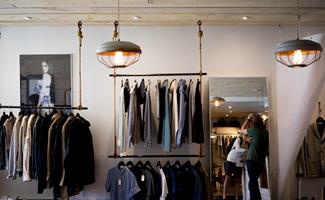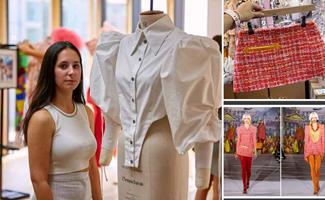Recently, Brand Finance published its annual report for 2020 that predicted a rather gloomy outcome for global fashion brands. The report predicted that the value loss could cross the enormous figure of £0.7 trillion!
The global pandemic has caused much havoc for many world industries, including the fashion media and luxury brand industry. The global apparel industry has been especially hit since prolonged lockdowns in different parts of the world caused factories to halt their production. The Brand Finance report suggested that the global apparel industry could be looking at a 20% loss.
Akin to the global market, the British fashion industry is also facing considerable losses compared to previous years. According to a news report by Altagamma, BCG, and Bernstein, fashion brands in London and the UK may lose up to £8.78 billion in luxury sales.
The Chief Executive of the fashion brand Next calls the present situation the most “unprecedented crisis in living memory.” But as with all major world events, the situation isn’t without silver linings.
What is the best way forward?
Despite being dramatically impacted, the global fashion industry has proved to be quite resilient. Fashion brands and businesses are figuring out new ways to go forward and reverse the damage caused by the pandemic.
Here are the top ways fashion brands are bouncing back in the market.
Digital storefronts
It goes without saying that the general public is looking to online brands and e-commerce sites for getting the bulk of their clothes and accessories in 2021. A recent McKinsey report stated that the purchase intention for online brands rose by 30-40% in Europe and North America in the last year.
Digital storefronts or e-commerce pages allow brands to stay relevant while saving money from not maintaining physical stores.
Rolex, the luxury watch brand, has successfully adapted itself to the e-commerce model. Therefore, the brand could retain a strong position in the market even in these uncertain times.
The company’s winning strategy was releasing only one new model last year, which helped maintain exclusivity. They also strengthened their online presence with a digital store, thereby stabilizing sales even in rough times.
The rise of sustainable fashion
With many accrediting the pandemic to an overtaxing of natural resources, people are looking towards sustainable fashion brands. As a result, more and more brands are searching for ways to reduce their wastage and find sustainable sources of raw materials.
Do you have a bunch of innovative fashion branding ideas that can help brands be environmentally conscious? Then, the MA Fashion Business and Management program from the London College of Contemporary Arts (LCCA) will be a great fit for you.
This course will allow you to work closely with fashion industry experts who will provide you with the best industry marketing and business management strategies in the fashion world. You will also be allowed to undertake independent research that can shape your unique understanding of the industry.
The fashion promotion degree will be awarded by the gold-standard institution, University for the Creative Arts.
Click here to learn more about the program at LCCA.
While some brands like H&M already went the sustainable way before the pandemic, others will follow suit in the post-pandemic world.
Relevance with a global audience
The purchasing power of local populations can rise and wane depending on many factors. That is why many global fashion brands target international audiences to improve their market relevance.
Connecting with a global audience can help brands improve their visibility and contribute to better sales irrespective of economic disturbances.
Gucci and Louis Vuitton are two fashion brands that are paving the way for nurturing international audiences. Both brands changed their marketing and branding patterns to target the huge untapped markets in India and China. This has given them an advantage as they can be considered pioneers in a new market.
Other positive changes include the rise in online fashion shows and events, a conscious decision to reduce the number of fashion seasons, and increased engagement with local communities.
Establishing a business career in the fashion industry requires you to have out-of-the-box ideas for launching or shaping a fashion brand. Pursuing a fashion business and management course can help you get acquainted with different market or economic factors affecting the fashion industry and help you come up with these innovative ideas.
Invest in a good fashion management program today to begin your fashion career.


 Essential Skills to Succeed in Fashion Business and Management Career
Essential Skills to Succeed in Fashion Business and Management Career  How is the fashion industry following the concept of minimalism?
How is the fashion industry following the concept of minimalism?  Why study fashion in London?
Why study fashion in London?  Experiential Retail is the Future of Fashion
Experiential Retail is the Future of Fashion  Paul Costelloe Internship | Enny Piscitelli - BA Fashion
Paul Costelloe Internship | Enny Piscitelli - BA Fashion